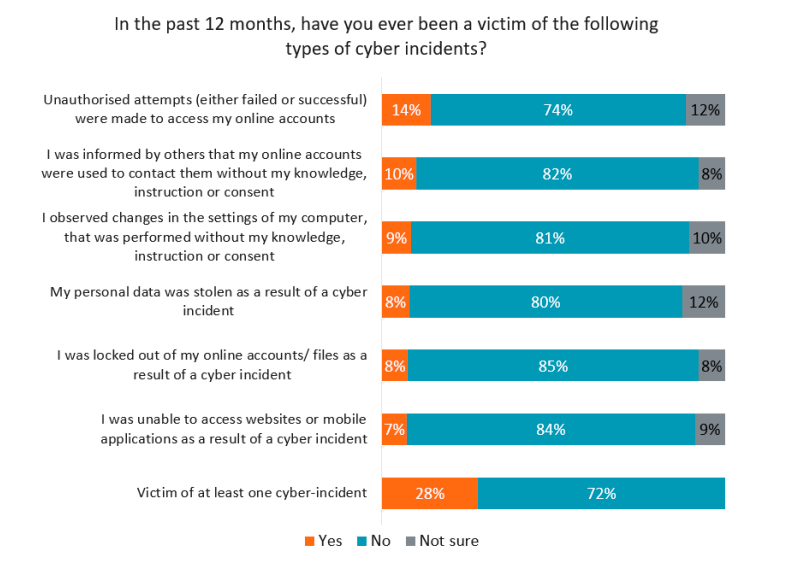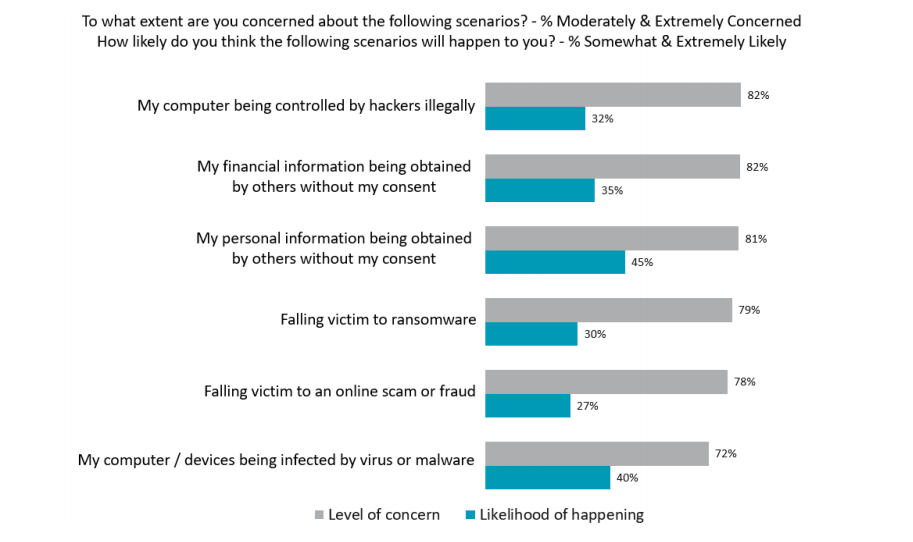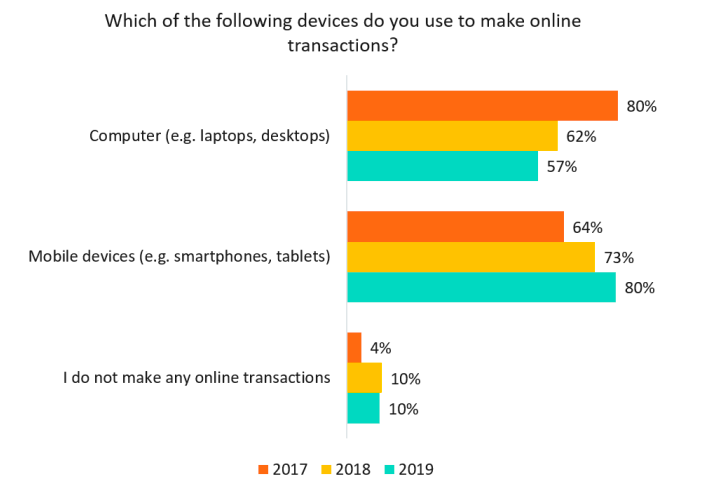Singapore’s population has significant concerns about cyber security, with 82% of respondents worried about having their financial information obtained by others without their consent, according to the latest findings from the Cyber Security Agency of Singapore (CSA).
The survey showed that 28% of respondents experienced at least one cyber incident in 2019 – down substantially from 48% from 2018. However, global prevalence of phishing attacks has accelerated – the CSA detected 47,500 phishing URLs with a Singapore link in 2019 – a 200% rise from 2018 figures. In addition, recent spikes in cyber attacks during the COVID-19 pandemic have seen 41% of businesses affected, according to a recent study by Forrester Consulting and Tenable.
According to the CSA, the most common types of cyber attacks were unauthorised attempts to access online accounts (14%) and the use of online accounts to contact others without knowledge or consent (10%). Similar to last year’s findings, respondents took action by changing their password, reporting the incident, and/or installing anti-virus software.

Photo Source: Cyber Security Agency of Singapore
However, the CSA warns that Singaporeans have yet to take adequate measures to protect themselves against cyber attacks. Although 72% to 82% of Singaporeans were very concerned about a range of cyber attacks, a much lower proportion (27% – 40%) believed they would personally experience cyber crime.

Photo Source: Cyber Security Agency of Singapore
In regards to preventative measures taken, there was a marginal improvement in password security measures and two-factor authentication (2FA) for online accounts. 83% of respondents activated two-factor authentication and adopted passwords with a combination of upper and lowercase letters, numbers, and symbols
However, there was a more mixed response when it came to phishing attacks – where scammers pretend to be a legitimate organisation to obtain sensitive information. Although a promising 66% of respondents surveyed knew what phishing was, only a mere 4% were able to correctly identify all phishing emails correctly. The majority (86%) of respondents could identify phishing through emails promising attractive awards, but were less perceptive to alternative tactics such as urgent/threatening language (55%) or requests for confidential information (53%).
In addition, mobile security remained lax, despite mobile transactions increasing from 73% to 80% in 2019. Results indicated growing public knowledge towards personal mobile security, with 85% of respondents acknowledging the risks of not installing security applications, and 64% knowing how to use them. However, less than half of respondents implemented such security measures.

Photo Source: Cyber Security Agency of Singapore
In light of COVID-19 and an increasing reliance on technology, David Koh, Commissioner of Cybersecurity and Chief Executive of CSA urges the public to take concerns more seriously: “It is important for us to shake off the ‘it will not happen to me’ mindset, stay vigilant, and take steps to protect ourselves online so that we do not become the next victim.”
Over 11 million cyber-attacks were reported to originate from Singapore in 2019, making it one of the world’s top sources of online threats. Amid social-distancing measures, CSA will continue to promote its outreach through platforms such as television programmes, virtual talks, and educational videos. The agency also announced plans to launch a Safer Cyberspace Masterplan later this year, aimed to “strengthen the defence and resiliency of Singapore’s Critical Information Infrastructure, and create a safer cyberspace for Singaporeans.”
Related Articles
COVID-19 Cyber Security: How Firms Can Better Protect Their Data
Cyber Security: 7 Top Strategies for Businesses & Freelancers
7 Things Your Startup Should Know About Cyber Security in 2020





